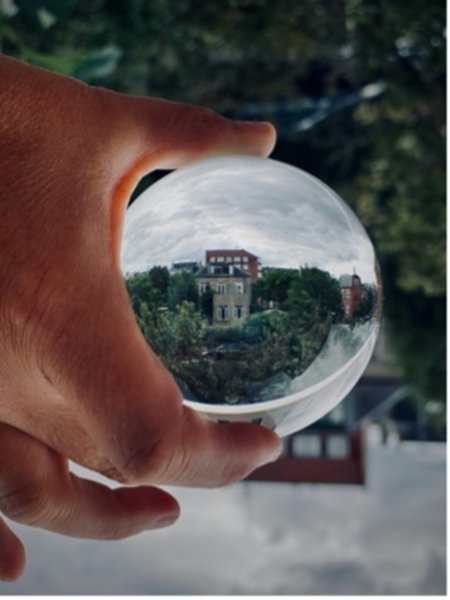Shaping the Nordic Past
Listen to a podcast on how we make sense of all the historical images that are fired at us all the time, and whether we ever stop to ask who is creating them and for what purpose.

Our ideas of a the past are shaped by many things: Historical stories on the news or in a museum, a book or a TV programme. We are showered in history every day in our homes, on the streets where we live, and through advertising and political messaging. Even our very identities are bound up with history as they are informed by our historical consciousness and our relationship to our own heritage - whether this is local, national or transnational.
But, with all these historical images being fired at us all the time, how do we make sense of them all? Do we ever stop to ask who is projecting them at us and for what purpose?
These sorts of questions led the nordics.info team to explore the politics and practicalities of memory culture and the uses of history in two podcasts. We asked two academics from Aarhus University’s Institute for Culture and Society to help us: Wulf Kansteiner, Professor of History and researcher in the field of memory studies, and Mikael Frausing PhD, also from the Danish Centre for Urban History, a researcher on country houses and tourism, as well as editor at danmarkshistorien.dk.
Warning: These podcasts may challenge your view of history as a whole! (You will not find historical accounts of the Kalmar Union or pillaging Vikings here!)
Podcast: Shaping the Nordic Past: Fact, Fiction or Politics?
Listen to this podcast if you want to hear more about:
- Memory studies.
- Why is our relationship with the past so important for society?
- How do we deal with different versions of the past?
- Scandinavian memory culture: the dangers of complacency.
Two historians offer a broad overview of how history is used by different types of people and institutions, giving examples from in and outside Scandinavia, including the challenges of transnational identity and historical power relations being expressed through our choice of words in political debates.
Podcast: Shaping the Nordic Past: History-makers or money-makers?
This podcast is about the practicalities of history-making and how commercial and non-commercial organisations use history to sell tickets or a particular version of the past.
Listen to this podcast if you want to hear more about:
- What role do museums play?
- Heritage portrayed by country houses in and outside the Nordic.
- The tradition of folk and open air museums in the Nordics.
- How can negative histories be useful?
- Tourism and national heritage: The Little Mermaid
- What are the responsibilities of commercial and non-commercial history-makers?
- Mobilising the past for the future.
Terms and museums mentioned in the two podcasts:
- “Dansk Folkeparti” (The Danish People’s Party).
- “Herregård” (Country houses or manors in English).
- Den Gamle By, Aarhus, Denmark.
- “Ghettolisten” (The Ghetto List). Read about the term ‘ghetto’ in Denmark: How Denmark's 'ghetto list' is ripping apart migrant communities, March 2020.
- Mads Daugbjerg (academic who coined the termed 'cosmopolitan nationalism').
- Moesgaard Museum, Aarhus, Denmark.
- The Occupation Museum, Aarhus, Denmark.
- The UK National Trust.
- 1864 television programme - (produced by Danish Radio).
Further reading:
- Daniel Levy and Natan Sznaider, The Holocaust and Memory in the Global Age (Philadelphia: Temple University Press, 2006).
- Janne Holmen, ’Mapping Historical Consciousness: Mental Maps of Time and Space among Secondary School Students from Ten Locations around the Baltic ad Mediterranean Seas'. Journal of Autonomy and Security Studies 1, 1 (2017), pp. 46-75.
- Michael Rothberg, The Implicated Subject: Beyond Victims and Perpetrators (Stanford: Stanford University Press, 2019).
- Jonathon Finch, Mikael Frausing and Signe Boeskov, eds., Estate Landscapes in Northern Europe (Aarhus University Press, 2019).
- Wulf Kansteiner, 'Migration, Racism and Memory'. Memory Studies, 12,6 (2019) pp. 611-616.
Links:
- European Network for Country House and Estate Research
- Nordic museums and their history
- MYTH: Is the little mermaid a Danish national symbol? (In Danish on danmarkhistorien.dk).
- Uses of the Past at Aarhus University
- Trailer of Danish drama series on the Second Schleswig War in 1864: